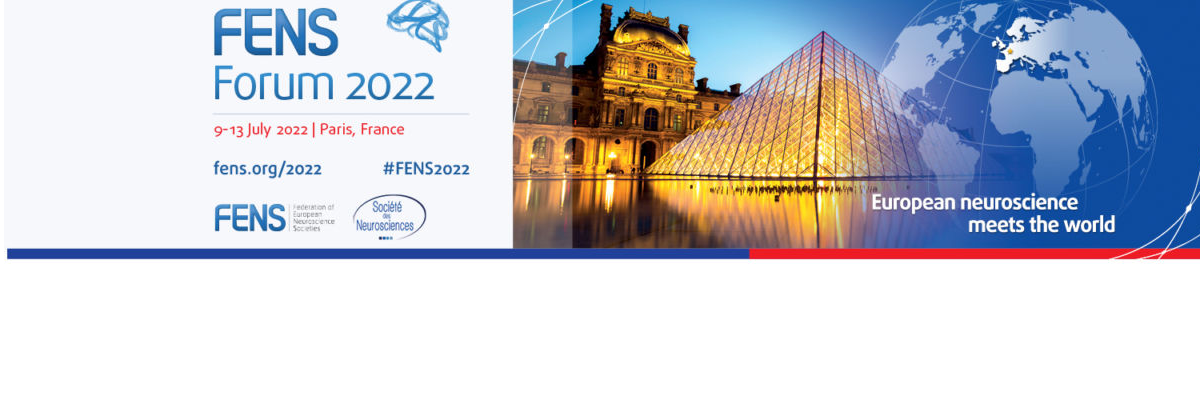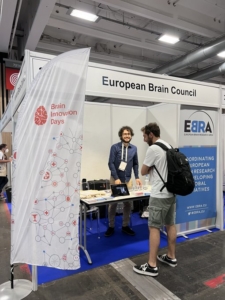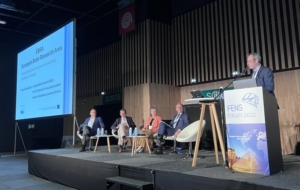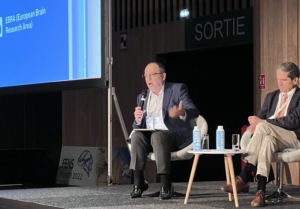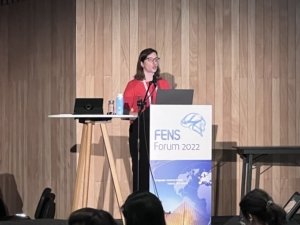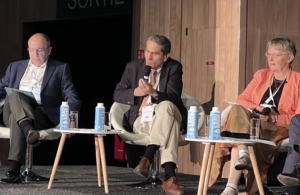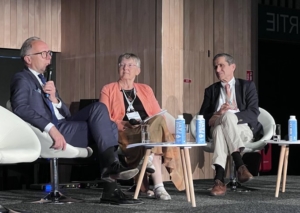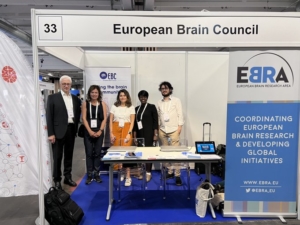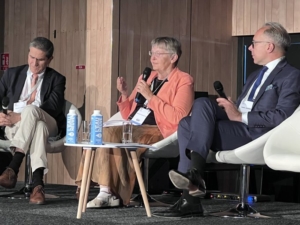EBRA was pleased to be back to another in-person congress last week, attending the FENS Forum on 9-13 July in Paris, France. Led by project coordinators the European Brain Council, EBRA was featured in a number of places throughout the congress, including a permanent stand in the Exhibition Hall, which brought a lot of interest and saw many EBRA materials and giveaways distributed to the 8000+ congress attendees.
Special Interest Event: The European Brain Research area: Building a Brain Health Partnership
Brain research is a rapidly evolving field and increasingly at the forefront of science. The EU and its Member States have made considerable investment in brain research leading to a significant increase of initiatives in this area. Although these initiatives have generated considerable amounts of knowledge and innovative approaches, the translation into new health interventions is hindered by the complexity of the challenge and by excessive fragmentation of efforts. Effective and efficient collaboration among the various initiatives is often identified as a key success factor to achieve the full impact of brain research. The European Brain Research Area project therefore aims to bring together the various stakeholders and major brain research initiatives, at European level and beyond, creating the conditions for real and effective cross fertilisation, dialogue, building consensus and exploiting research potential.
During this special session, the EBRA consortium — consisting of the European Brain Council, the ERANET-NEURON, the EU Joint Programme for Neurodegenerative Disease Research and the Human Brain Project — highlighted the importance of shaping the future of European and globally coordinated neuroscience and presented the Shared European Brain Research Agenda (SEBRA) to discuss the goals of building of a new partnership on brain health in Europe.
Speakers included Juan Lerma, Frédéric Destrebecq and Kristien Aarts (European Brain Council); Philippe Amouyel (JPND); Marlies Dorlöchter (ERANET-NEURON); Pawel Swieboda (Human Brain Project).

